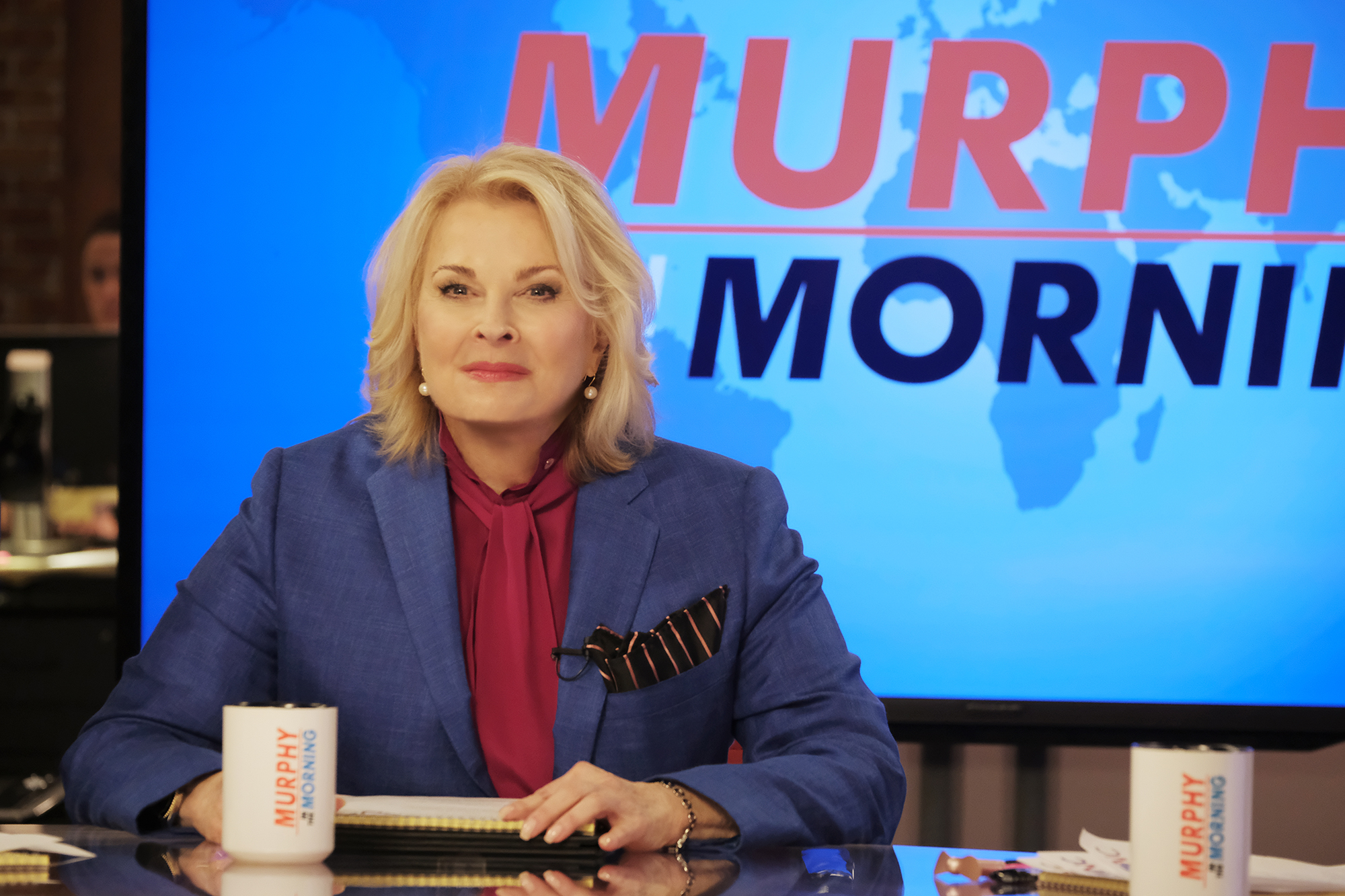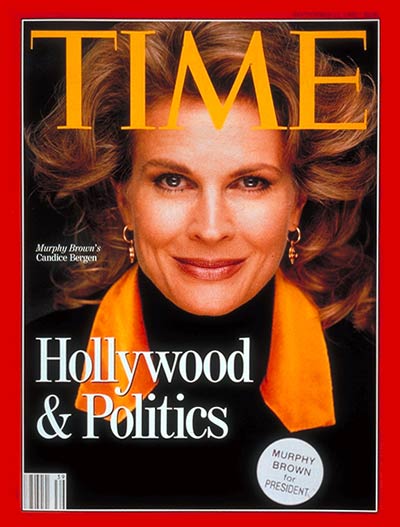
Twenty years after signing off air, CBS’s groundbreaking show Murphy Brown returned to TV on Thursday night, with Candice Bergen again at the helm.
While America has changed since Murphy Brown first made waves for having an unapologetically feminist female lead, the show has kept its basic premise with a newsroom setting that allows the fictional characters to address unmissable real-life parallels. Much like the 1990s hit, the new Murphy Brown is designed to take on the news of the day, mingling fiction and reality. For example, in the new iteration, Bergen’s Murphy Brown feuds with President Trump after he insults her on Twitter; the show mocks political figures such as Steve Bannon and addresses hot-button issues like the #MeToo movement and the rise of neo-Nazis in the U.S.
But just as the fictional newswoman Murphy Brown was able to respond to what was happening in real life in the late 1980s and 1990s, what happened on the show also caused news of its own.
The most famous example of the original Murphy Brown making national headlines for its intersections with the real world came in 1992, when the show was at the center of a drawn-out controversy with then-Vice President Dan Quayle. At the time, title character Murphy Brown, a recovering alcoholic and hardworking TV journalist, had consciously decided to raise a baby on her own. It was a controversial choice, and one derided by Quayle, who blamed the character for the breakdown of family values in a May 1992 speech.
“Bearing babies irresponsibly is, simply, wrong. Failing to support children one has fathered is wrong. We must be unequivocal about this. It doesn’t help matters when prime-time TV has Murphy Brown — a character who supposedly epitomizes today’s intelligent, highly paid professional woman — mocking the importance of fathers by bearing a child alone and calling it just another ‘life-style choice,'” Quayle said.

Quayle received a deluge of backlash for the comments, and was the butt of several jokes at the 1992 Emmy Awards. “Quayle’s attack on Murphy Brown… has been the most widely quoted speech of the presidential campaign,” TIME noted that fall, as it appeared that the events on the show could influence that year’s presidential election, in which incumbents Quayle and President George H.W. Bush would be defeated. And on the show itself, Brown addressed Quayle directly.
“Unfortunately, it seems that for him, the only acceptable definition of a family is a mother, a father and children,” she said in a broadcast in the fictional world. “And in a country where millions of children grow up in nontraditional families, that definition seems painfully unfair.”
Critics have noted that this series of events sparked by Murphy Brown paved the way for numerous shows that followed its path. Single mothers soon made their way on TV without issue, from Gilmore Girls to later seasons of Sex and the City to recent shows like Girls and SMILF. High-powered career-minded characters such as Claire Underwood, Ally McBeal and Olivia Pope might not exist in their iterations had Brown not been on screen, showing in her shoulder-padded suits that it’s O.K. to be a woman focused on something beyond likeability.
And while the feud between Brown and Quayle was a high point in the show’s national prominence, which faded in subsequent seasons, the show also made news for the way it addressed other topics — including the Anita Hill-Clarence Thomas hearings, during which Hill accused the then-nominee to the Supreme Court of sexual harassment. Coincidentally, the new version of Murphy Brown premieres on the same day that Supreme Court nominee Brett Kavanaugh and Christine Blasey Ford, a woman who has accused him of sexual assault, which he denies, testified before a Senate committee.
While Murphy Brown may have been gone for two decades, it looks as if she still has a lot to cover.
More Must-Reads from TIME
- Donald Trump Is TIME's 2024 Person of the Year
- Why We Chose Trump as Person of the Year
- Is Intermittent Fasting Good or Bad for You?
- The 100 Must-Read Books of 2024
- The 20 Best Christmas TV Episodes
- Column: If Optimism Feels Ridiculous Now, Try Hope
- The Future of Climate Action Is Trade Policy
- Merle Bombardieri Is Helping People Make the Baby Decision
Write to Mahita Gajanan at mahita.gajanan@time.com